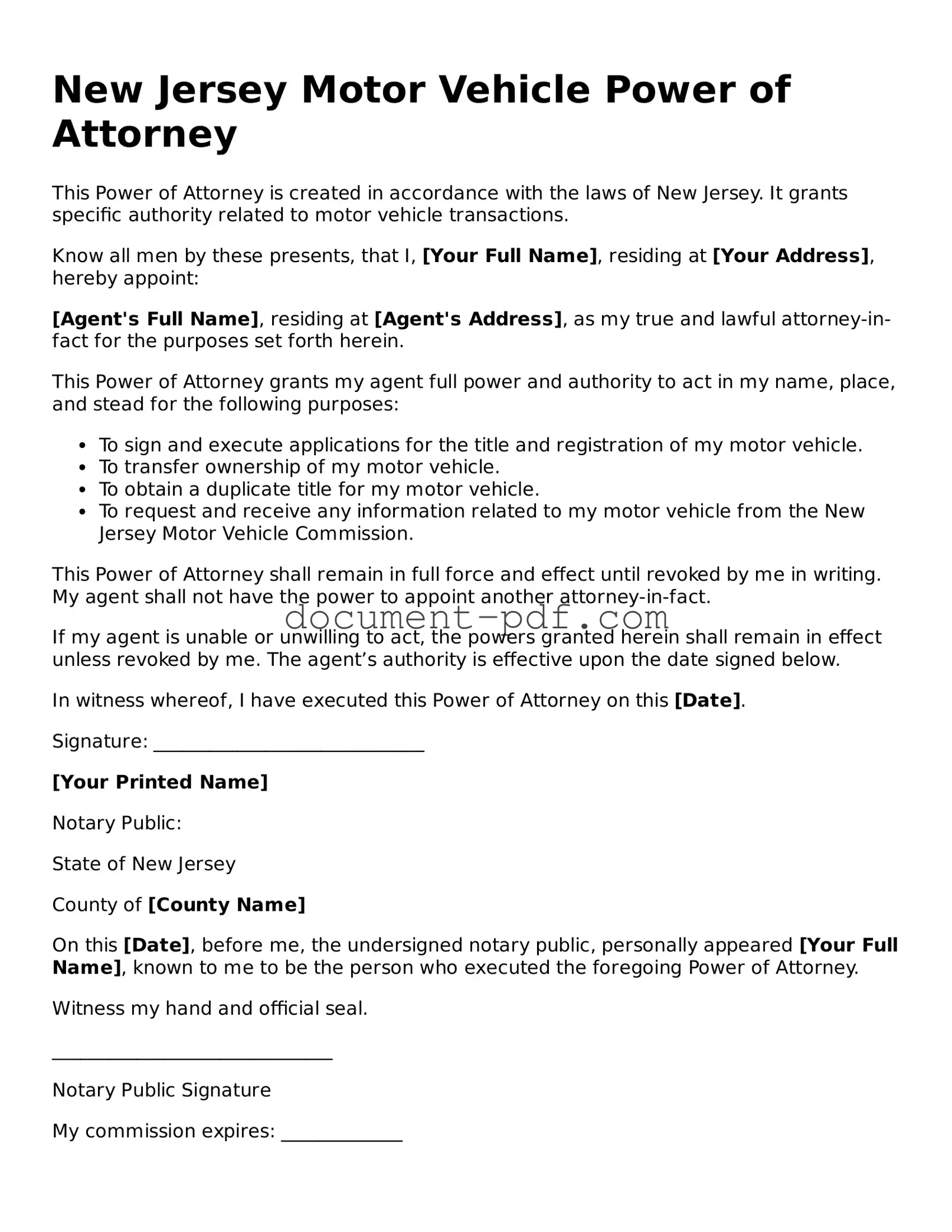Attorney-Verified New Jersey Motor Vehicle Power of Attorney Template
The New Jersey Motor Vehicle Power of Attorney form is a legal document that allows an individual to designate another person to act on their behalf in matters related to motor vehicle transactions. This form is essential for facilitating tasks such as title transfers, vehicle registration, and other important vehicle-related decisions. By utilizing this form, individuals can ensure their interests are represented even when they cannot be present to handle these matters personally.
Ready to take control of your motor vehicle transactions? Fill out the form by clicking the button below.
Access Motor Vehicle Power of Attorney Editor Here

Attorney-Verified New Jersey Motor Vehicle Power of Attorney Template
Access Motor Vehicle Power of Attorney Editor Here
Finish the form without slowing down
Edit your Motor Vehicle Power of Attorney online and download the finished file.
Access Motor Vehicle Power of Attorney Editor Here
or
Click for PDF Form
